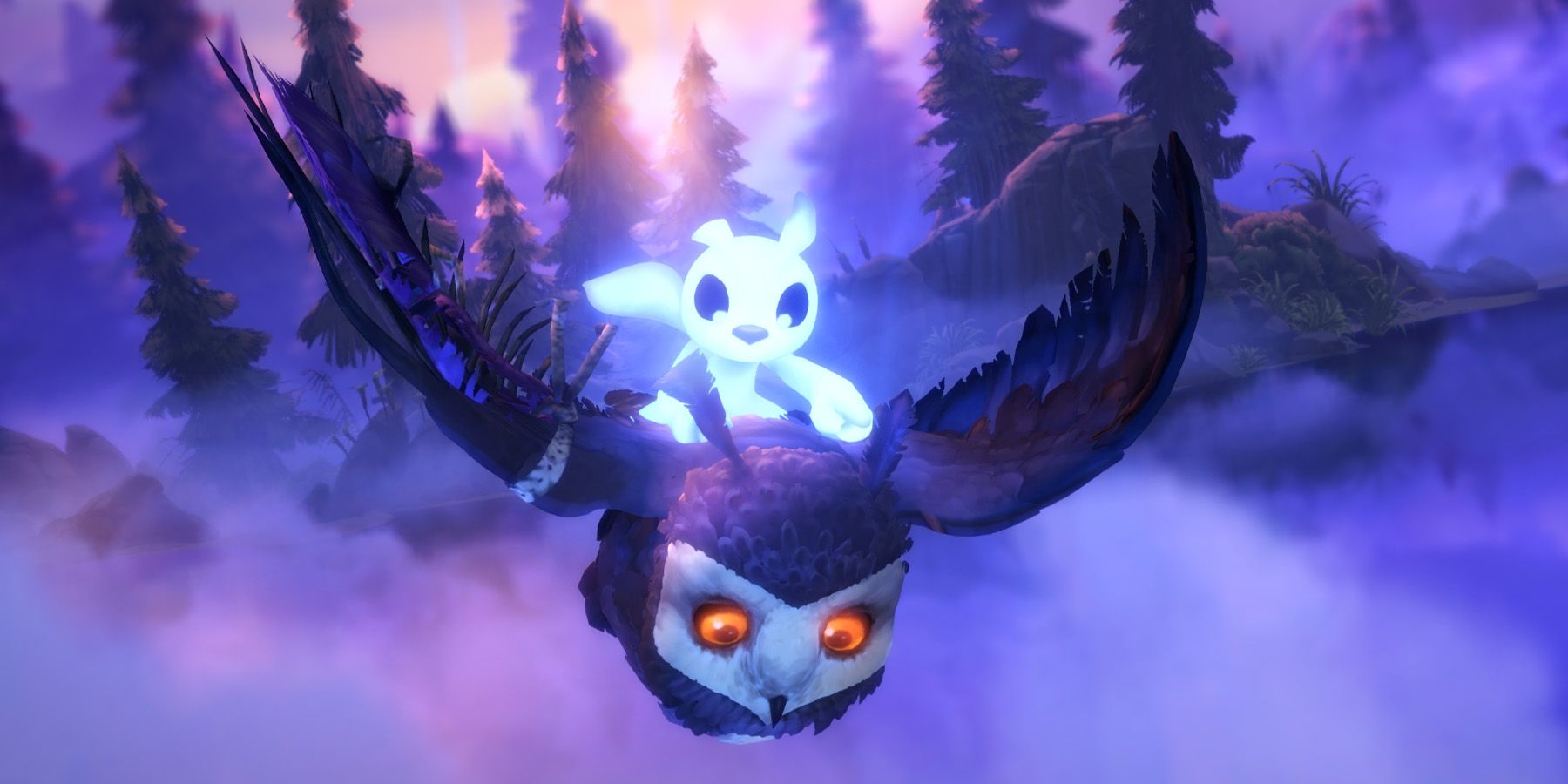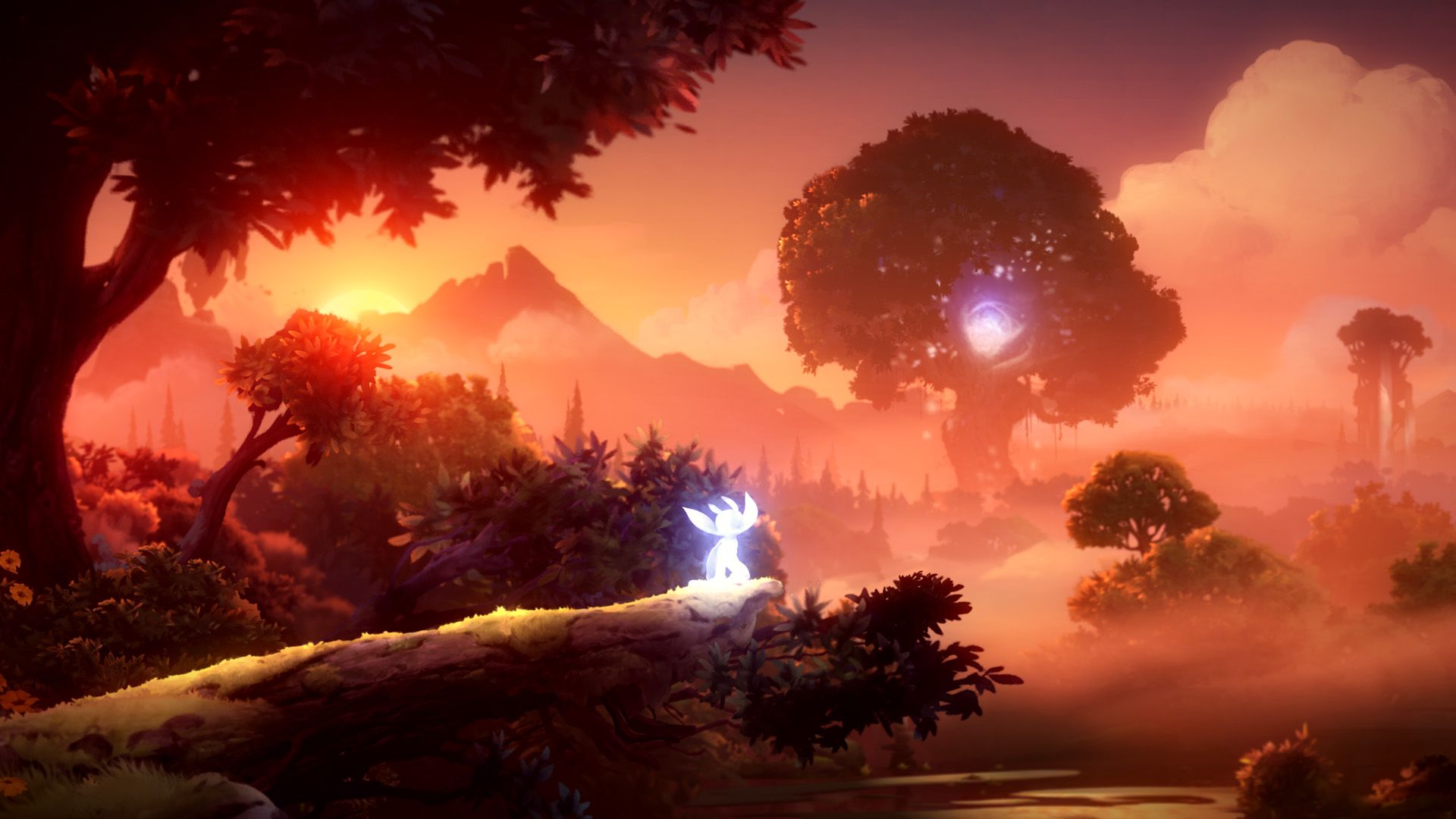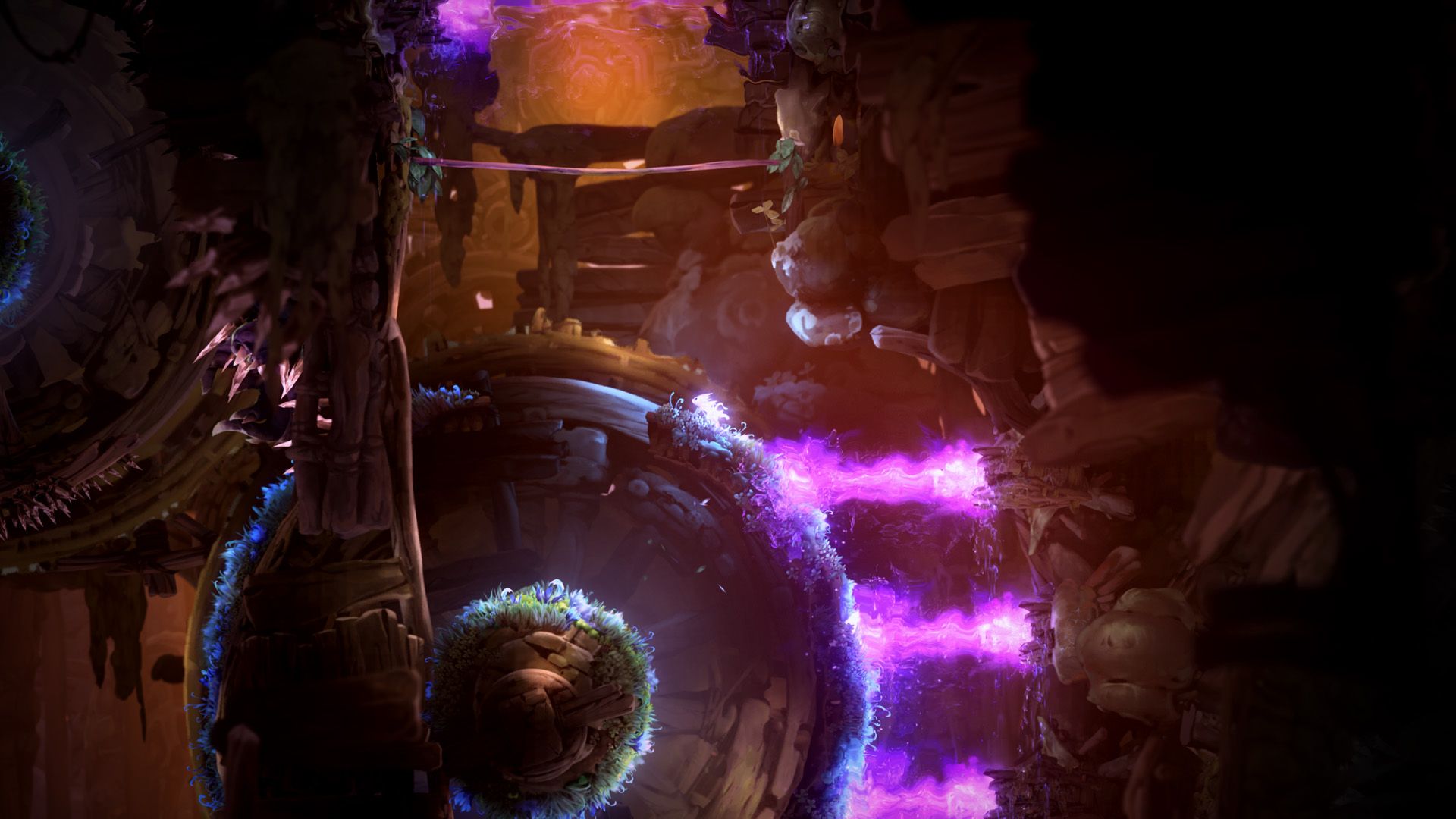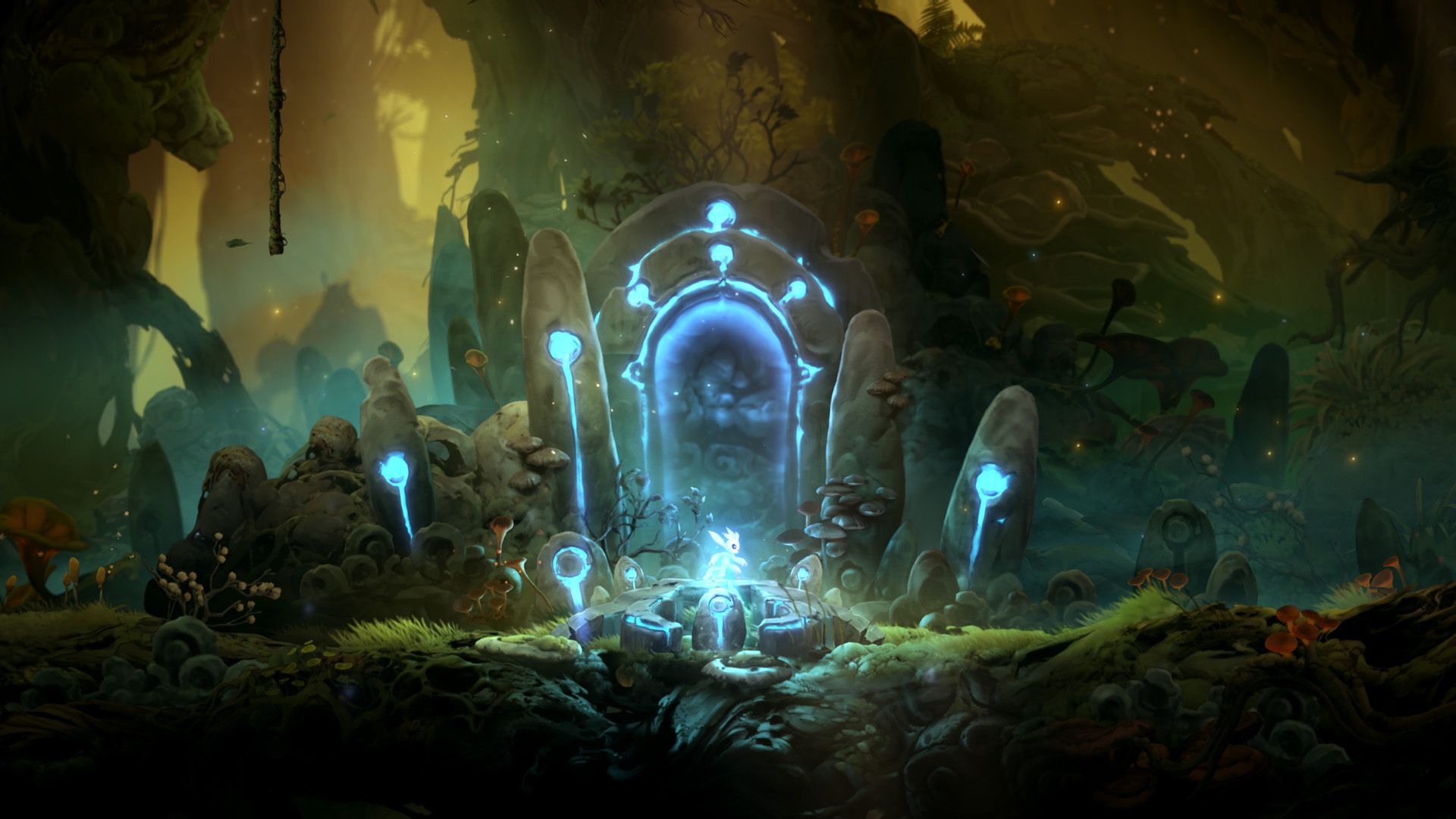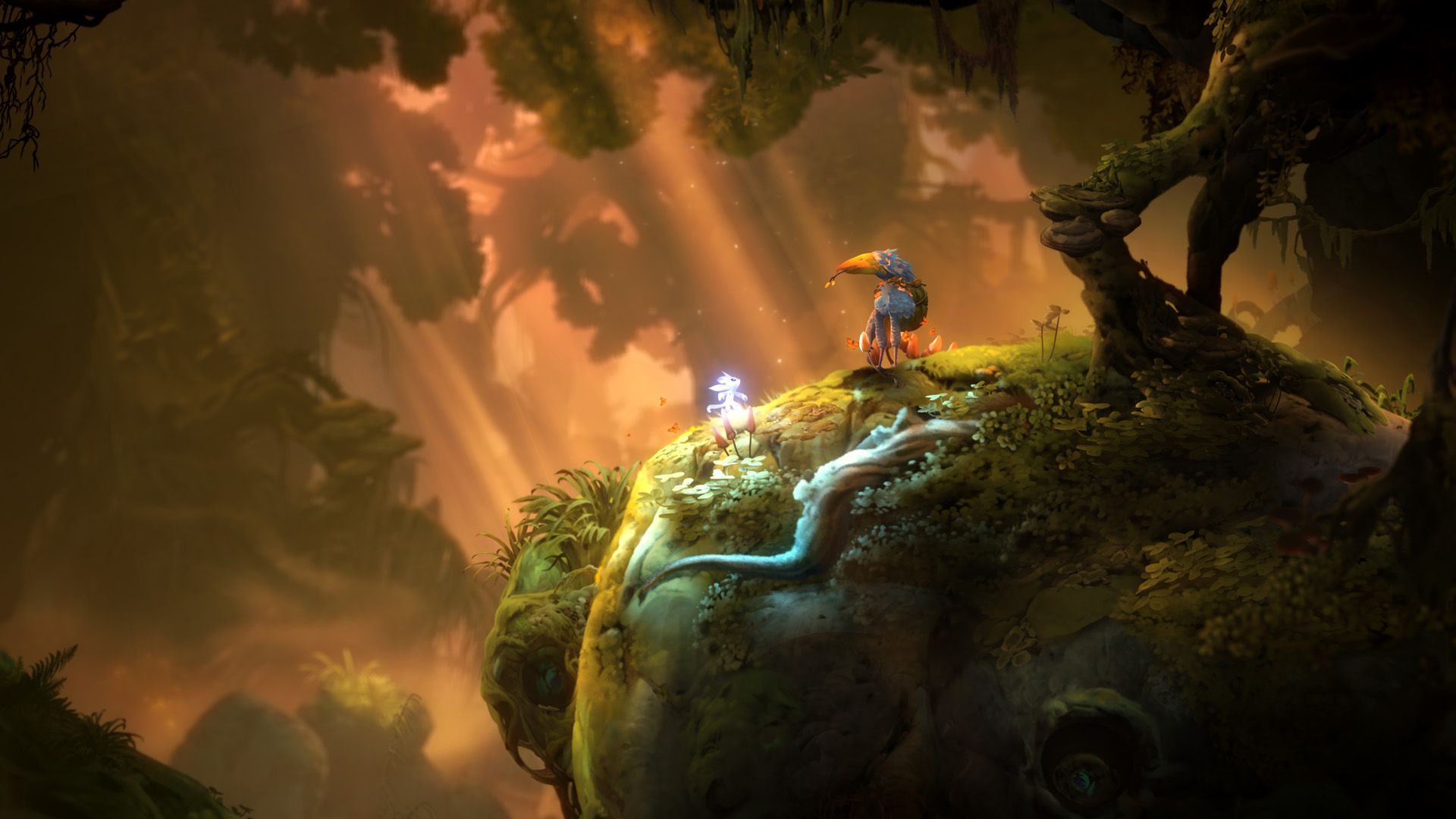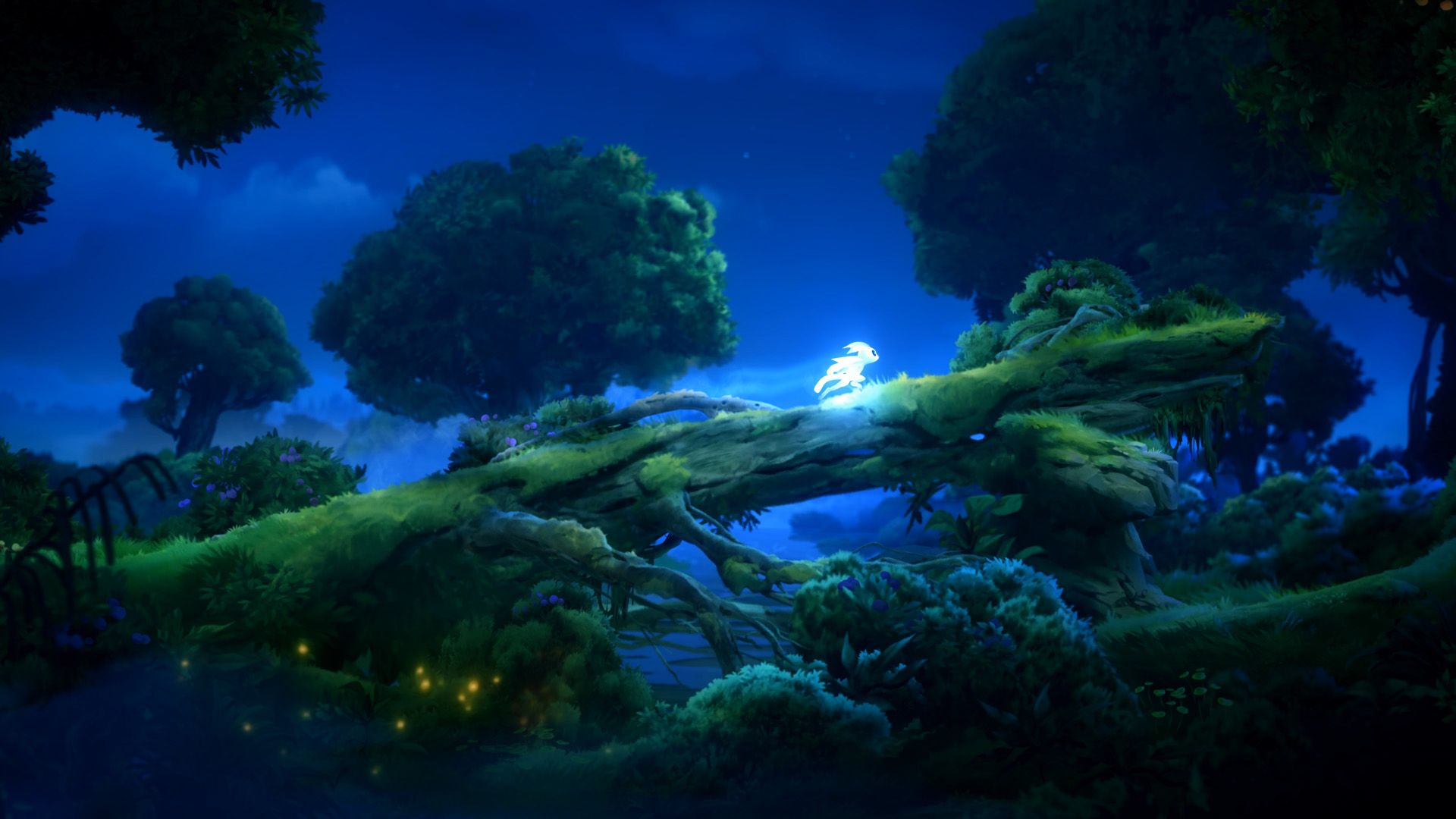Fans will soon have their hands on the long-awaited Ori and the Will of the Wisps, sequel to the hit platforming title Ori and the Blind Forest, as the game is finally set to release on March 11th, 2020. Moon Studios has been hard at work on Ori and the Will of the Wisps for a number of years now, and that hard work is immediately apparent upon booting the new game up for the first time.
Featuring a world more than three times bigger than the original and a number of gameplay tweaks and additions, Ori and the Will of the Wisps includes all of the things players loved about the first game and then piles even more content on top of that. Now featuring a plethora of NPCs, multiple powers players can map to the controller's face buttons, and autosave checkpoints instead of a manual save system, the sequel to Ori and the Blind Forest has clearly been made with a distinct vision in mind, and it hearkens back to a time when every video game sequel was an enhancement of what came before, not just a retread.
Screen Rant was invited to visit Moon Studios and, while taking a look at Ori and the Will of the Wisps, had a chance to speak with a few of the creators who brought the project to life. Check out the full interview below, in which Senior Producer Daniel Smith and Composer Gareth Coker discuss the inspirations and decisions behind all of the new mechanics in Ori and the Will of the Wisps, including the reasons for the game's new RPG-like shard mechanics and how influential early Disney films were on the creative team.
How long does it take to create music for a project like this? I know that's something that ties into every aspect of the game.
Gareth Coker: Well, my approach is perhaps a little different to many other composers. There's two types of composers in the game industry: there's composers who play the game and composers who don't. Both are valid, but I play the game. I put in hundreds, probably thousands, of hours into the game at this point. When we start development, I learned the game, I learn the flow. The flow of the game is super important to how I think about writing the music. But it can be a couple of years of development before I actually write anything.
It's interesting that you say that, because it's one of the things that I think a lot of people picked up on. There are parts in the first game which were super difficult for a lot of players, but one of the things that made it easier was the fact that the music doesn't stop and keeps cycling through.
Gareth Coker: Yeah, deliberate choice. The only drawback is that sometimes things don't line up exactly how I want them to, but the benefits far outweigh. Because when you reset the music, it's kind of like resetting a film set. It's like "Alright, actors, Ready, go." Everything has to start again. Anything that breaks immersion is bad; stopping the music is bad. When you have a game that has no loading screens like this - and having watched a bunch of people play the last couple of days - you have to willingly want to stop. Because there are no breaks. It's just constantly new stuff.
Daniel Smith: I love your comment about the difficulty. And, definitely, we learned a lot since Blind Forest. The definitive edition included difficulty setting, and we've carried those forward in Will of the Wisps. There's a whole lot more: like, one of the philosophies around the shard system is that if you're a skilled player, you can equip yourself with shards that make you super offensive at the trade off of being more vulnerable. Whereas if you have difficulties, you can equip yourself with super defensive shards or shards that help with navigation or traversal. You probably saw the sticky shard. And if you're stuck in a particular escape sequence or boss fight, you can just start abandon run. There's a lot of things that we've done to basically aid players who may be having a difficult time, as well as amp things up for players who are like, "I love the challenge. Can I have more?"
The biggest thing that stands out for me, in terms of gameplay differences, is no more manual saves. Let's talk about why that is.
Daniel Smith: There are a few very good reasons for that. We love soul link in Blind Forest; you had to deliberately spend energy to save, and we celebrated that by being able to level up soul link. It was definitely one of the more prominent points of player feedback, and we really listen to our community and what we can do to just make Ori evolve further and further. One of the points of feedback was, "Gosh, I get frustrated sometimes if I lay down a soul link, and then I get an hour ahead and I forgot. Then I die, and I have to go way back."
And that's that stopping point, where it's just like, "Okay, I'll come back to this later."
Daniel Smith: Yeah, so in early experiments with auto checkpointing everywhere, we noticed player frustration was just eliminated around that particular subject. That, and there's a trade off. Soul link took up a face button on the controller. And what we found is that by introducing all these weapons, all these abilities, all these options for Ori to very quickly pull open an ability wheel and map these things, we're actually saving a face button. So, really, we feel like we're gaining so much more than we're losing by having Soul Link gone.
It seems like you tried really hard to give Ori much more agency as a character. In the first one, the player kind of had the idea that his powers came from the orb. Whereas in this one, it's all coming from him. He doesn't have that secondary character like floating around telling him where to go and what to do.
Daniel Smith: Yes. It's much more of Ori's destiny story, and character progression is much more revolved around Ori in this one, for sure. That's really interesting that you noticed that and are calling that out. Ori is older. Ori is growing.
He has a family now.
Daniel Smith: That's right. Ori may be rusty at some of the original abilities in the very beginning of the game, but you can see that things evolve very quickly.
I noticed that you're giving the player abilities much faster than in the first one.
Daniel Smith: Yeah, it's very interesting. In Blind Forest, Ori receives Wall Climb as as the first ability. But then the next ability is Double Jump, and that's a ways further. We really just wanted to make sure we're paying attention to the cadence that you're growing and progressing in your character development in this one. And we feel really good about it; in all the users study sessions we've done, I think people are just having a blast with how powerful you're growing quickly. And that progression never stops. I mean, this is a much larger game. It's three times the size of Blind Forest. I feel good about player progression, even in this longer, much more robust experience. Ori continues to grow all the way until the end.
Gareth Coker: Just to expand on that. I mean, it's one thing that we're throwing new abilities at you a lot. But we kind of always want to make sure that there is something of interest around the corner, whether it's a little cutscene or there's a boss fight... You're never that far away.
It does seem like there is more things happening in every area. Now it's filled with characters.
Gareth Coker: One of our goals was to make the world feel very, very alive.
Daniel Smith: Are you in the Wellspring Glade right now, where all the NPCs kind of gather? We have a little area; we codenamed it The Hub. It's called the Wellspring Glade, and it's inspired by things like Terraria. You build kind of a haven for NPCs to coalesce and live, or have homes. The Wellspring Glade can be upgraded.
There does seem to be a lot more almost RPG-type elements. It's everything from the first game, but also this mechanic and also this mechanic.
Daniel Smith: Yeah, Blind Forest was much more, I'd say, Metroid-like. Whereas this game, to me, is much more Zelda-like. A lot more enriched with characters and RPG elements and things like that.
Do you mean Zelda 2, because of the downward thrust on your sword?
Daniel Smith: Yeah, or Link's Awakening is another big one that we draw inspiration from. But it's incredible that we were able to draw such powerful affinity to the characters and emotion. We love all the videos of people crying and things like that from the first game.
It's dramatic, but it feels almost childlike because of the animation. The music helps a lot with that; it gives it like an ethereal sound. But it's also dark in a way that old Disney movies are, or The Secret of NIMH.
Daniel Smith: Yeah. I mean, we're inspired by so much pieces of media and content that we grew up with.
Gareth Coker: Lion King. Even Bambi. Bambi was actually one of my references.
You can feel that in the intro of the first game.
Daniel Smith: Fantastical creatures, but with very human qualities. I think that's why a lot of our original characters from Blind Forest resonated; people were able to identify with these characters. And for us this time around, to a build a bigger game, that was also another core pillar. Let's just expand the universe of Ori, so there's loads more characters in this game.
Something that was interesting about the first one is the very slow way that the story and the plot is revealed. Was that on purpose, to slowly ease you into the lore and not give you too much information at once?
Daniel Smith: Yeah, absolutely. I mean, you remember the prologue in the first game. We had people crying right off the bat. There's much more of a slow build in Will of the Wisps. But we've gone to great lengths to make sure that we're still trying to tie in as much emotional depth in our storytelling as we possibly can. I think it was pretty cool what we pulled off in Blind Forest. Like, let's make people really feel something; let's make the story resonate in a Metroidvania genre. And I'm really happy with how that's turning out in Will of the Wisps. We're just trying to push that even further.
Gareth Coker: Obviously, the main story is one thing. But there are also a couple of sub characters who we're on the verge of meeting that also have interesting stories. It's gonna be interesting to see, because there's this one character that's one of my favorites. That story arc is very, very interesting, but you don't get to experience it today. Just having like more characters for people to relate, because people did find the characters relatable in the first game, is a big plus. Plus, it's more fun for our animators.
And not only more characters, but also more side missions.
Daniel Smith: There's a golden path storyline that still has forks, you know. You're able to go, "I'm not going to do that first; I want to do this other thing." But there's a number of optional quests and side missions and spirit trials. Did you ever get to play spirit trials from our previous demo? There's something new that we're talking about, which is called spirit shrines. It's the same type of idea, like, let's bring a mode into the game that will keep people coming back in. "Tonight, I'm going to ignore story. I want to just attack spirit trials or shrines."
Shrines are really cool. You'll come across these structures where you enable a shrine, and then you'll just have waves of enemies with increasing difficulty come at you. They're very combat focused, and if you defeat all the enemies, you'll get these very significant rewards. Spirit trials have all tested really well. At Gamescom, we had a hard time getting press to leave the BCD rooms. You're like, "Guys, really, you gotta go." "No, one more try!" It's always a good sign. We've drawn inspiration from things like Super Meat Boy for those modes.
When Blind Forest came out, there wasn't as much of a resurgence in the Metroidvania genre as there is now. Do you think your popularity helped to spur that on?
Daniel Smith: I'm glad you bring that up. I don't think any of us are going to take any responsibility for that. But I will say that I feel like Blind Forest came out at just the very beginning of a cusp of a resurgence of the Metroidvania genre. And since Blind Forest, there have been piles of great Metroidvania games. We love Hollow Night, Dead Cells and all these great games. And I really feel like Will of the Wisps will be part of the wave. Personally, it's one of our favorite genres. I just love seeing more and more games in the genre space come back.
Gareth Coker: It's not just the 2D games, it's bleeding into the AAAs. Control and Fallen Order are technically Metroidvanias. You wouldn't necessarily think that, but they are.
I have a quote here that says, "Will of the Wisps should be to Blind Forest what Super Mario Bros 3 was to Super Mario Bros."
Daniel Smith: That's [Moon Studios' lead developer] Thomas Mahler's quote. Basically, what we're trying to do is not make an Ori 1.5. We're really going for something so dramatically different and larger. We're trying to improve every aspect of Blind Forest that we possibly can. That's the combat; that's the visual aesthetic. It's full 3D pipeline. We've gone to great lengths to make the music even better, and have more of it. I believe that is a true statement. We feel really good, honestly, about the direction of the game. And we've had a lot of success lately with our player sessions, where people were fresh and new to the experience. Again, we're trying our best to just make an absolute true sequel; something that's very fresh and new, but also has a lot to love for fans of the original.
One last thing: in the first one, you're playing the game and you feel like you have a feel for it, and then you get to about halfway through the Ginso tree. You get the Bash ability and, all of a sudden, the entire game is different. Enemies aren't as scary anymore and everything becomes traversal as opposed to attacking. Is there going to be a moment like that, about halfway through the game, where all of a sudden everything flips again and you turn it on its head?
Daniel Smith: This time around, we've had the fortunate benefit of having better telemetry through development. And I think we're being very mindful this time around about having difficulty just gradually increase. The same goes for like unlocking new abilities and character progression. I think we'll always find that there are speed runners who try and just sit through without engaging in any enemies or combat.
Gareth Coker: But you will have to engage in combat, because we have boss fights. You can't ignore the combat this time.
Was that one of the reasons that you decided to include boss fights this time?
Gareth Coker: We wanted boss fights because we wanted more spectacular stuff. That's really the reason. We had the chase sequences, which were spectacular. Obviously, we've got more of those. It's like, "What else can we do?" We can do boss fights. And for me, the really exciting part is the multi-phase boss fights, which you won't reach today. It starts off with the combat phase, and then there might be a chase sequence, and then another combat phase. And then it's all seamless.
Daniel Smith: I think Bash was that one very beloved ability in the first game, for sure. It's tough for me to put a finger on one ability that will really be the beloved ability.
Gareth Coker: There's some additional traversal abilities in this game. I think in this game, it will be the combination and the chaining of ability that people like. The amount of stuff you can chain together is staggering, which makes the later part of the game very empowering.
Ori and the Will of the Wisps releases on Xbox One and PC on March 11, 2020.

